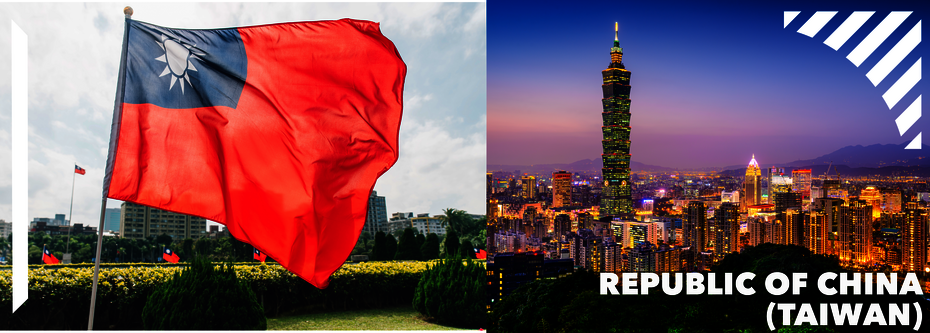Commitment to the well-being of the region.
The Republic of China (Taiwan) joined CABEI in 1992 and is one of the Bank's first non-regional members; its incorporation enabled the Bank to issue and place its first bonds on the international market. At the close of 2021, it is the non-regional member with the highest shareholding (11.4%) with a subscribed capital of USD776.3 million and contributions amounting to USD133.6 million.
In the coordination of development projects, the Republic of China (Taiwan) cooperation for the region focuses on key areas for poverty reduction, such as food security, education, agriculture, Micro, small and medium-sized enterprises, agribusiness, coffee producing sector affected by rust, export promotion and forestry and industrial development.
As a relevant fact, in 2020, thanks to the alliance with its non-regional partner country, CABEI made it's 19th issue in the Taiwan capital market, historically totaling US$ 2.3 billion.
In 2021, CABEI opened its representative office in the Republic of China (Taiwan) located at the Taipei 101 building.
CABEI Issues inaugural Social Bond in Taiwanese market

CABEI launches its 4th Social Bond for 2022.
Tegucigalpa,1 September 2022. The Central American Bank for Economic Integration (CABEI) has issued its fourth social bond in 2022, its first ever in the Taiwanese capital market. The US$55 million private placement, had a 4% fixed rate coupon and a 5-year tenor, reaffirming CABEI’s commitment as a regular global ESG issuer.
Taking into account this new transaction, so far this year CABEI has placed a total of five ESG issuances for an aggregate amount of US$376 million; which include three social bonds in Australian Dollars (AUD), and one Green Bond in the Swiss Francs (CHF).
Back in 2020, CABEI created its Social Bond Framework receiving a strong and solid Second Party opinion from Sustainalytics. Consequently, the net proceeds of this issuance will finance eligible social projects and assets in compliance with the International Capital Market Association (ICMA) principles. The latter, in line with CABEI’s Institutional Strategy through which it seeks to develop a more sustainable Central American region and have a positive impact on the UN’s Sustainable Development Goals.
CABEI´s Executive President Dr. Mossi stated “The bank’s commitment to issue ESG bonds isin line with CABEI’s strategy, and in this case, the Taiwanese market will once again help us finance environmental and social projects with positive impacts on the standard of living Central American citizens”. Dr. Mossi added “we are highly appreciative of Taiwanese investors that have trusted CABEI since our first ever bond issuance 25 years ago back in 1997”.
The Republic of China (Taiwan) has been a non-regional member of CABEI since 1992 and has a shareholder position of 11.42% within the current capital structure of the Bank, the highest amongst all members. Recently, CABEI’s Executive President and high-level officials arrived at the Republic of China (Taiwan) to commemorate the 30th anniversary of a strong and fruitful relationship with the Bank.




